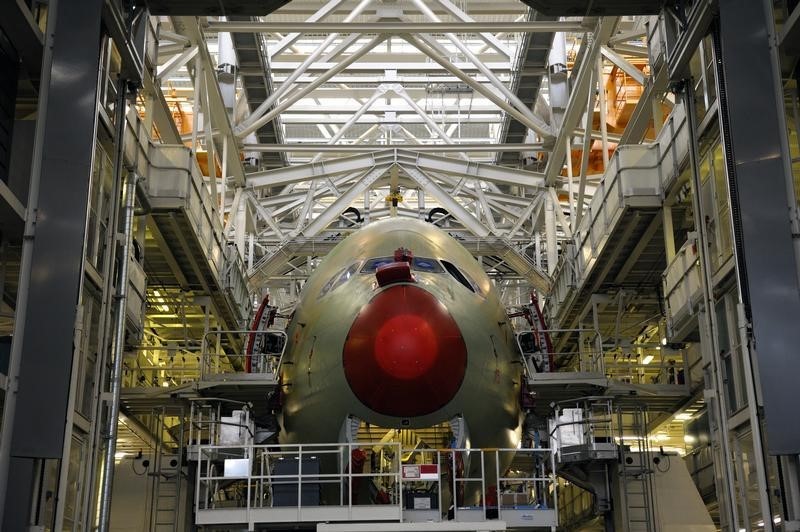Emirates airline is facing a dilemma with its fleet expansion plans due to performance issues with Rolls Royce (LON:RR) engines earmarked for the Airbus A350-1000 aircraft. On Monday, Emirates' President Tim Clark announced at the Dubai Air Show that the airline has put further orders of the A350-1000 on hold. The potential order of 35 to 50 units is contingent upon Rolls Royce resolving the engine performance problems. This development comes as a setback for Airbus, which had hoped to match Boeing (NYSE:BA)'s substantial $52 billion deal with Emirates. As the primary supplier of the discontinued A380 super-jumbo to Emirates, Airbus is now navigating challenges as Emirates prioritizes performance, especially under the demanding flight conditions prevalent in the Middle East.
Despite these challenges with aircraft orders, Emirates is pushing forward with significant investments to enhance its fleet's cabin experience. Today, the airline revealed a multi-billion-dollar agreement with Safran (EPA:SAF), a French aerospace company, to provide next-generation seats for its Airbus A350, Boeing 777X-9 aircraft, and retrofitting for Boeing 777-300 planes. This deal marks a continued investment in European aviation technology and underscores the strategic alliance between Emirates and Safran.
Emirates President Sir Tim Clark and Safran CEO Olivier Andriès emphasized their commitment to creating an elevated cabin experience through intelligent design and advanced technology. As part of this deal:
- Safran Cabin will provide advanced galley shipsets for the A350 fleet.
- Safran Landing Systems will supply high-performance wheels and carbon brakes, offering weight savings and improved cooling for faster turnaround times.
- Safran Passenger Innovations will introduce its RAVE AeroConnect Ka solution on selected Airbus and Boeing aircraft, enhancing inflight entertainment options and connectivity.
This announcement follows Emirates' plans unveiled earlier this week to purchase 95 Boeing wide-body jets in response to escalating global travel demand. In addition to providing new seating across all classes—business, premium economy, and economy—the contracts with Safran exceed $1.2 billion and include cabin equipment along with retrofitting and maintenance services.
This article was generated with the support of AI and reviewed by an editor. For more information see our T&C.
